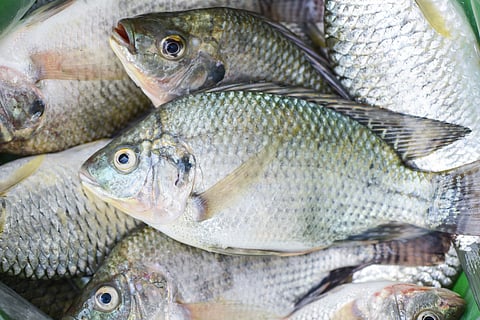

Tilapia generally need warm water between 26°C and 30°C to thrive.
Photo: Adobe Stock.
Researchers have discovered that two common ingredients in chewing gum - Arabic gum and lecithin - can significantly improve the resilience of Nile tilapia, enabling the species to survive in colder climates. This breakthrough could expand tilapia farming to regions beyond the tropics, where the fish is typically raised.
The study, published in Aquaculture Reports and conducted by scientists from Benha University, Egypt’s National Institute of Oceanography and Fisheries, and Ateneo de Manila University, explored the effects of adding specific amounts of Arabic gum and lecithin to the diet of Nile tilapia fingerlings. These ingredients were mixed into fish food before being introduced to tanks of young tilapia, where researchers tracked their growth, blood chemistry, and enzyme levels.
Nile tilapia (Oreochromis niloticus), native to Africa, has been a popular food source in tropical countries like the Philippines and Indonesia, thanks to its rapid reproduction rate. However, the fish generally requires warm water between 26°C and 30°C to thrive, limiting its potential for colder climates.
By feeding the tilapia fingerlings a diet enriched with 4 grams of Arabic gum and 10 grams of lecithin per kilogram of fish food over three months, the team observed notable improvements in the fish's ability to tolerate cold temperatures. The fish fed with the highest levels of these ingredients also showed higher specific growth rate, fish survival, weight gain, and lower feed conversion ratio, compared with diets with lower quantities.
According to the researchers, the diet boosted levels of essential minerals, enzymes, and antioxidants, helping the fish combat the physical stresses associated with lower temperatures. Additionally, the researchers noted that the diet appeared to activate specific genes linked to cold resistance.
Source: Ateneo de Manila University. The full study can be accessed here.
